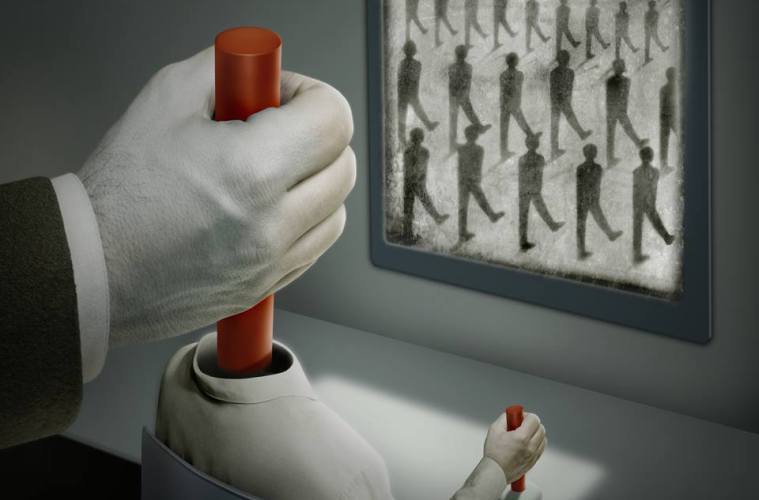Do we understand Trump or his country? Reflecting the title of Sacha Baron Cohen’s latest shockcom “Who is America”, writer William Wall examines the true nature of the USA in his latest article, which neatly explores Trump’s power base and a side of America we’re not so familiar with.
Firstly, let me say that Donald Trump is not the American Nightmare. He is, in fact, the American Dream Writ Large. He is rich, arrogant, shallow, individualist and lacking in empathy for others. When Americans say they don’t want to pay for medical care for others, they are talking Trumponian.
When they say America is the greatest country on earth, a beacon of freedom, the leader of the free world, the kind of place that people look up to, the home of the free or the brave or any of the other standard epithets, they are talking Trumponian.
But what are the values of the USA?
I’m not talking about Mom’s Apple Pie and the so-called ‘American dream’. I’m talking about the values of the state that is the USA. It’s possible to deduce these values from the actions of that state. What states say about their values can, of course, be dismissed unless the rhetoric matches the reality.
The USA places a very high value on projecting its power. This is clear from the size of its military forces and the amount of national expenditure it eats - especially if taken with sweetheart deals and tax breaks for the military-industrial complex.
The USA places a high value on being able to extract resources from weaker countries. We can see this in action in Afghanistan and Iraq, but also in its conflicts with countries like Venezuela which refuse to buckle to the power of the USA.
The USA values its power of life and death over its citizens and its power to incarcerate minorities and awkward presences - often for a very long time indeed.
The USA places a very high value on the subservient behaviour of vassal states such as Israel and Saudi Arabia, so much so that it wastes vast amounts of scarce resources on them. I say ‘scarce’, because clearly there are not enough resources left over to take care of its own citizens.
The USA places a very high value on being able to interfere in the internal workings of unfriendly states in order to achieve the right result in elections and coups. I hardly need to give examples of this, but Pinochet is an outstanding one of many.
The USA places a high value on war and death and has defined a particular kind of heroism for its soldiers which involves them losing life or limb for very little reward. Soldiers are valued as killers, but also as role models, making appearances in schools, colleges and sports stadiums, for example. Many unrelated businesses (cafes, bars, restaurants, etc also reference the military as objects of charity which reinforced the role-model effect).
The USA places a high value on weapons, from ‘personal' weapons including sniper rifles and assault weapons to nuclear weapons. It is only possible for America to be continuously at war because ordinary people are at war: white people with black and brown people and Native Americans; rich people with poor people; capital with labour; fascists with anti-fascists; states with the state; Christians with atheists, Muslims, and Jews; straight people with queer people; men with women.
Why else would the USA have the highest rate of gun-ownership in the world? And why would a state tolerate such gun-ownership? Because guns are for war, and the people are at war, and the state is at war.
The central tenet of the state’s creed is not liberty or equality, but authoritarianism and conformity.
This is not to say that ordinary Americans support these values. Many do, many don’t. Many don’t see them. I am not speaking of people and their values, but the values of the state.
This post has been slightly shortened/edited, the original, called “American Values” is from The Ice Moon Blog by William Wall (@wiliamwallbook). William Wall is the 2017 winner of the Drue Heinz Prize for Literature. He has also won the Doolin Prize for poetry, Virginia Faulkner Award, The Sean O’Faoláin Prize, several Writer’s Week prizes and The Patrick Kavanagh Award. You can access more of his writing including free books and essays @ http://williamwall.net/


 RSS Feed
RSS Feed
